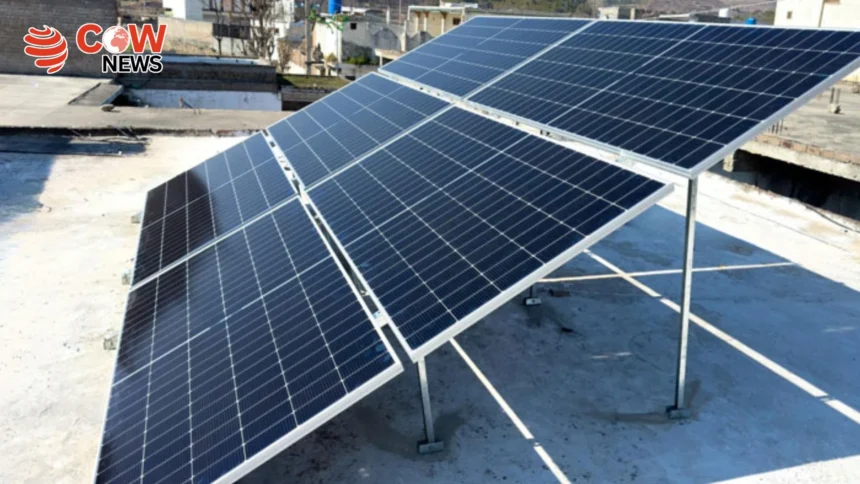Islamabad( The COW News Digital) The federal government of Pakistan is set to replace the existing net metering system with a new gross metering policy under the revised national solar energy framework. The draft policy, which includes a new electricity buyback rate, is expected to be presented to the Prime Minister soon.
Under the new solar energy policy, the current system of net metering — which allows consumers to sell excess electricity back to the grid at retail rates — will be replaced by gross metering. The move is aimed at addressing what officials describe as an unsustainable financial burden on the national power grid.
According to official estimates, the net metering mechanism has added a financial burden of approximately Rs. 103 billion to the energy sector. Gross metering, on the other hand, will compensate solar energy producers at a lower rate, aimed at creating a more balanced economic model.
The new rate for buying back solar-generated electricity has been set at Rs. 11.33 per unit. However, existing solar panel users will continue to sell electricity at the earlier rate of Rs. 27 per unit under the grandfather clause. Future tariffs will follow a fixed formula — one-third of the market retail electricity price will be the designated buyback rate.
The policy, once finalized, will be submitted to NEPRA (National Electric Power Regulatory Authority) for approval before being tabled in the federal cabinet for final endorsement.
The Power Division has outlined a target of injecting 8,500 megawatts of solar-generated electricity into the national grid, a key step toward reducing dependency on fossil fuels and alleviating the energy shortfall.
Critics of the new policy, including investors and solar energy advocates, have expressed concerns that reducing the per-unit buyback rate will discourage further investment in solar technology. Some have already rejected the proposed pricing model, warning it may slow down Pakistan’s shift to renewable energy.
Supporters of the policy argue it is a necessary step to maintain grid stability and reduce subsidies that are disproportionately benefiting affluent households.
As energy demands rise and climate challenges grow, the new solar policy is likely to spark debate on how to balance economic viability with environmental responsibility.







